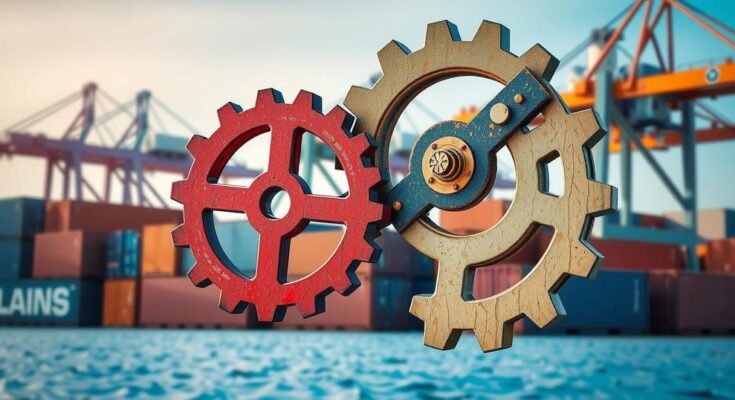The ripple effects of the 2018-19 trade war with China are still felt today, notably in Utah’s agricultural market. Tariffs placed by the U.S. administration led to retaliatory tariffs on U.S. agricultural products that have yet to dissipate. “As an economic tool, tariffs are really blunt instruments,” says John Gilbert, a professor at Utah State University, warning of their limited effectiveness and a tendency to harm both domestic and foreign markets.
Gilbert further explains that the last trade war saw Chinese importers shift their sourcing, particularly beans from Brazil, making it challenging for U.S. producers to reclaim market share. He notes, however, that such tariffs could also serve as tools for negotiations with other countries. “That’s certainly a game that can be played,” Gilbert remarked, cautioning against potential risks.
Should a new trade war emerge, especially with China or neighboring countries when current negotiations pause, American consumers will bear the brunt of the consequences. Gilbert emphasizes that tariffs impose indirect taxes on consumers, since importers pass costs onto them. “Tariffs are not taxes on foreigners. They’re taxes on American consumers,” he stated bluntly, highlighting the implications for everyday purchases.
Retaliation from China could mirror previous patterns, targeting U.S. agriculture again. Gilbert warns that China’s control over rare earth minerals gives it leverage to influence U.S. technology sectors severely. “If they decide to restrict trade… they can really hit the U.S. tech industry hard,” he cautioned, illustrating the interconnectedness of global trade.
While the prior tariffs did increase domestic steel production, the broader economic impact has not been without cost. Gilbert elaborates, “You can’t do that in a costless way.” The higher production costs have affected industries reliant on steel, resulting in wider repercussions for construction and durable goods.
The lingering effects of the 2018-19 China trade war still impact U.S. agriculture, particularly in Utah. According to economist John Gilbert, tariffs serve as ineffective economic tools, imposing a tax burden on consumers. He warns that China may retaliate by targeting U.S. agriculture and tech sectors, leveraging control over rare earth minerals. The increased costs from tariffs also affect domestic industries reliant on steel.
The potential for another trade war raises significant concerns over its impacts on consumers and industries alike. With tariffs likely hurting American markets while benefiting negotiating leverage, the past continues to shape the present. As complex global interdependencies persist, policymakers must carefully evaluate the repercussions of any new trade initiatives.
Original Source: ksltv.com



